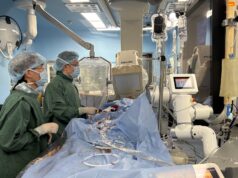 Patients who received warfarin after bioprosthetic aortic valve replacement had lower incidence of mortality and a decreased risk of blood clots, according to a retrospective study published in Mayo Clinic Proceedings.
Patients who received warfarin after bioprosthetic aortic valve replacement had lower incidence of mortality and a decreased risk of blood clots, according to a retrospective study published in Mayo Clinic Proceedings.
Research has been conflicting on whether patients would benefit from more aggressive early postoperative anticoagulation treatment, the researchers claim. Their study compared all-cause mortality and thromboembolic events in patients undergoing surgical aortic valve replacement (SAVR) receiving anticoagulation with warfarin versus patients with no systemic anticoagulation.
The researchers analysed nationwide data on more than 10,000 patients who underwent bioprosthetic aortic valve replacement. Warfarin use was associated with a 32% reduction in mortality risk, they concluded. Patients treated with warfarin early postoperatively also had an increased risk of major bleeding events.
“The findings support early warfarin use in appropriately selected patients, such as patients with low bleeding risk,” says Hartzell Schaff (Mayo Clinic, Rochester, USA), a cardiovascular surgeon who contributed to the study. “There’s often reluctance to prescribe anticoagulant treatment early after surgery due to concerns about bleeding and uncertainty about benefits. Our research finds that the small increased hazard of bleeding (4% vs. 2.3%) may be an acceptable risk given the benefits in terms of mortality risk as well as reduced risk of thromboembolism.”
The Mayo Clinic study analysed deidentified patient data from 2007 to 2019 using OptumLabs Data Warehouse, which contains claims data of commercially insured and Medicare Advantage enrollees of all ages and races throughout the USA.










